In a nation often shaped by turbulence, missed opportunities, and unrealised potential, few voices resonate with the authority, wisdom, and moral clarity of Prof. Anya O. Anya. A respected elder statesman, accomplished scholar, seasoned technocrat, and a biologist who emerged as the pioneer Director General of the Nigerian Economic Summit Group, Anya has lived through the triumphs and travails of Nigeria’s post-independence journey. He speaks with a disarming blend of candor and grace, qualities that have defined his life and public service. Even as he acknowledges the hand of providence in his journey, Anya expresses anguish over the state of the country he loves, saying Nigeria has no basis to be where it is today. But he is optimistic. He strongly believes that the country is nearing an inflection point and critical moment of significant transformation. Obinna Chima brings the excerpts:
Can you tell us about your early years, where you grew up and the values that shaped your childhood?
The story of my life is the story of grace. Without God and his mercy, there would have been no Prof. Anya. My father was a fairly well-off person. In 1940-41, he had a lorry, but he died. I was born in 1937, but he died in March 1945. So, I was about eight years old when he died. He had then put me in school. He brought me back from Port Harcourt, where I was growing up and enrolled in school at Abriba. But when he died, there was nobody to assist me. My mother struggled. An uncle agreed that I could live with him as a day boy and go to school, but there was the question of who would pay my school fees. My mother kept on struggling, and whatever she had, she would send to my guardian. And I struggled like that from class one to class three. Indeed, that was where God’s miracle started. We had a lesson on the circulation of blood in class three. Two weeks later, the teacher gave an exam on the subject, and my answers were outstanding. He took my script to the class above us to show them how brilliantly I performed. So, that put the spotlight on me. So, when I was going home, I would pass the Calabar County Council Library and spend some time there reading before heading home. Then there was to be a County Council election. One of the men said I should be recruited to help them check the electoral register for them, which I did. I didn’t know God was opening the doors for me through that because the Calabar County Council now gave me a scholarship. So, in my Class Four and Class Five, I was a boarder student due to that scholarship. My grade shot up. Which was why when we finished Class Five, I was one of the 10 people that the school selected to come back for the Higher School Certificate. I went back, did the higher school, and was prepared for university. For the university, I applied for a federal government scholarship, and I got it. When I finished at the University College, Ibadan, my external examiner, Prof. Noel, from the University of London, asked to see me after the examination. He asked me what I wanted to do next. After I told him, he asked if I had heard about the Molteno Institute at Cambridge, and I said yes. So, told me to write to the institute and that I should let them know that he was the one who asked me to write to them. That was how I went to Cambridge to study Parasitology, and I believe I have given a good account of myself both nationally and internationally.
What motivated you to pursue a career in academia?
There were people I admired. Akanu Ibiam became a missionary doctor. When he finished, he came back to Nigeria and founded a hospital in Abriba. His wife used to work with the local women, so my mother would often take me to their house. I admired his lifestyle and aspired to emulate it. Secondly, we all knew about Eni Njoku, the first Minister of Power in Nigeria and the first Vice Chancellor of the University of Lagos. I developed a personal relationship with these two men, and they encouraged and raised the bar for me.
Looking back, what will you say was the turning point that defined your professional journey?
There are many defining points for me. Getting a scholarship from the County Council was unthinkable because, even at that time, there was an attitude towards the Igbos. To have an Igbo boy come to Calabar and get a scholarship was unthinkable, and God arranged it in a manner that they felt obligated because of the service I rendered to them. So, the scholarship for me was a defining moment because from that point I was no longer struggling or thinking about where to get money for my school fees. Also, the federal government scholarship that I had was a defining moment because in those days, they not only paid your fees, but they even gave you pocket money. And when I come back for the holidays, I would be involved in vacation jobs, and from all that, I was supporting my mother and siblings, who were all in schools as well. So, that was how we struggled. But the lessons I learnt are that you cannot do without God. Secondly, don’t pray that you come into life into a rich family and overnight all that vanishes. The struggle to get back is very difficult. To have been there and you fall, to start again is always difficult because people would not believe you don’t have anymore. That was what happened when I lost my father. So, when you have been through that, you can’t help but be grateful to God, because he makes the difference.
As a professor, what did you find most fulfilling about teaching?
I have also been fortunate in that. I went to a funeral ceremony recently. One of my students came up and quoted some of my lectures, and we laughed about it. I am lucky to have taught some of the brightest.
How did your academic background influence your approach to leadership?
When you have role models like Eni Njoku, you want to imitate their lifestyle. Eni Njoku had the reputation of being the brightest African that went to the University of Manchester. So, when you have people like that as role models, you know that the pole is still high above you. But if someone else has achieved it, if you remain focused and consistent, you will also do so. So, the story of my early life created in me empathy for those who are struggling. When I saw students struggling, I tried to assist them with the things they needed to survive. But talking about leadership, Nigeria is not what one hoped it would be and Nigeria has no basis to be where it is today. But where we are did not come overnight. It took time. On three occasions, I went to international conferences, I presented papers, and people came to me to ask, ‘How can people like you be there and your country is the way it is?’ I was asked that question in the United States, former Yugoslavia, and at Cambridge. ‘How can your country be the way it is, and there are people like you?’ I had no answer for them. Slowly, we have developed tolerance for criminality. Look at what is going on in the political parties, the things they tolerate, nobody asks any questions about accountability. Nobody builds a society that way. Even now, as we speak, there are enough people who can turn this country around. But the kind of characters that have been drawn into politics in Nigeria, you will see that those pulling down are more than those building. But I am not hopeless about Nigeria. I have followed the history of other countries. There is always an inflection point when things change. Societies are not changed by the majority, but by the minority. The good thing is that when you start succeeding in your leadership, a few more people will start admiring it. A new value system would start emerging, and younger people would start learning from the new value system and things would change. Take China as an example. If you study China and what they went through, you will not believe what they have done in the last 50 years, with a complete change in direction. They picked what they needed from other countries, internalised it, and made it theirs. That is what Nigeria needs to do. So, we need competent leaders who have character to make progress, and I think we are at that inflection point and the opportunity is right now before Nigerians.
Since President Bola Tinubu decided to honour key figures linked to the June 12, 1993 election last month, we’ve heard varying accounts of what truly transpired. From your perspective, what is the significance of that decision, and how do you interpret the events of June 12 today?
I have been reading everything that I have been written and all the claims made. But I think I should start the story from the beginning. Towards the end of 1989, General Ibrahim Babangida once more postponed the return to democracy. Three of us – Ebitu Ukiwe, Abdulazeez Udeh, who is now dead, and I – we sat down and said, ‘Look, if this thing comes out the way they are planning it, the Igbos will not be part of it.’ So, we decided that none of us could speak for Ndigbo; therefore, we should have a meeting of the leadership in Igbo land. That meeting was held in Ukiwe’s house in Abriba, Abia State, and everybody that was anybody in Igboland, from Chukwuma Onoh, Sam Mbakwe, Pius Okogbo, and anybody that was somebody in the entire region, was at that meeting. The only person who was not there was Alex Ekwueme. That meeting agreed that we should reach out to the Yorubas. So, we decided that Onoh, Mbakwe and I, should go and meet Akanu Ibiam at Unwana, and tell him what we were planning. We went and he received us and he was very happy. So, we came back, consulted, and a delegation of three was sent to Adekunle Ajasin. We met Ajasin at Owo, Ondo State. When we got there, I made a presentation and we discussed the need for the south-east to work with other regions in the country, and after that, we left. Two weeks later, Ajasin called me and said his people have agreed to meet with us as we requested. Sonny Odogwu now offered to host the meeting in his house at Asaba. A very strong delegation of the Yorubas came to Asaba, while we came from the east. There, we decided to form what we called the Council of Unity and Understanding (CUU). Ajasin, Ebitu, and T.Y. Danjuma were all Co-Chairmen of the CUU. So, we had the east, the west, and the north-central, all represented. We decided that the three groups will be working together ahead of the electoral programme that Babagida was expected to set up. Now, the issue of how to mobilise the leaders of these various areas to see what we were doing and to join us came up. I went on a delegation, with Sonny Odogwu, led by me to Jos. Solomon Lar and other important leaders in the State were there. We told them what we were doing and they welcomed it. The framework for us to work together was established. Fast-forward, it became who would be the candidate that the group would embrace if the election came. We, on our path, said we were not in a position to dictate to anybody, since there was likely to be no Igbo man coming up to contest. We then agreed to team up with the Yorubas and bring in the Middle Belt into it. The Eastern Caucus chose M.K.O. Abiola. When we mentioned that we were going to choose Abiola, Ajasin, and some others opposed the idea initially. We told them we were dealing with a political situation and that we must have a candidate who, despite the fact that he is coming from the south, must have a relationship with some parts of the north and looking through Nigeria then, it was only Abiola that fulfilled that. There was no Emir he had not supported and no there was no major formation he had not worked with. We now called a meeting in T.Y Danjuma’s house, to decide who was going to be the candidate to be adopted by the CUU. We started the meeting, and Ajasin once more opposed the choice of Abiola. At that point, Ayo Opadokun appealed for calm, and they convinced Ajasin that we should all support Abiola. We now endorsed Abiola. While we were in that meeting, they told Abiola to meet us at Danjuma’s house and he came. That was where the journey started. Now, we go to a point where we needed to make sure that the Nigerian people know what we were doing, because all these while we kept our meetings secret and away from the media. We decided that whether we liked it or not, we needed to go public. So, somebody suggested that we should invite Tony Enahoro. He was invited. After further discussions, we decided on two things: First, that we would float the National Democratic Coalition (NADECO), and we agreed that NADECO would be the public face, while the CUU will continue being the father. The way we worked was that Ayo Opadokun, whom they have not mentioned at all, was the driver and linkage between the CUU and NADECO. It got to the point that things were now developing hour by hour. I discussed with Ukiwe and we agreed to bring in Ndubuisi Kanu. So, I met with Ndubuisi and explained what we’ve been doing and I took him to Abiola to introduce him to Abiola that since I was in the east, he should always consult with Ndubuisi Kanu. Kudirat Abiola and Dr. Olikoye Ransome-Kuti were at that meeting. And the journey of NADECO started.
Are you in any way disappointed that President Tinubu did not acknowledge any of the names you referenced in his Democracy Day honours?
Of course. But I am not blaming anybody because it means they did not know what went on. But the one that surprises me is Ayo Opadokun, because he was the public face of NADECO for a long time. But nobody talks about the CUU that was the parent body. We are talking about fidelity to history. That is why is important. The people you see their names were the people who played the politics of June 12 on the pages of newspaper, not the people who did the quiet planning and the work.
So, what is one message that you have for the President on this matter?
First, that there ought to be a more detailed study of the events of those days, and secondly, to identify those who played key roles, not what the newspapers wrote. It is not as if the President is ignorant. In one or two of the meetings I talked about, he attended, although he was not part of the leadership. He recognised my role because when my mother died, he was Governor of Lagos State, and he sent Yemi Cardoso, who is now Governor of the Central Bank of Nigeria, to represent him at the funeral at Abriba, Abia State. But I am not blaming anybody, but it is just all about lack of information. So, we need the detailed study so that there will be an accurate rendering of the event. This is important, even for the country moving forward.
How do you react to those who have chosen to politicise this matter rather than address its substance?
Each one is telling his story from his angle of observation. The situation we have is the story of the blind me and the elephant, everybody talking from their perspective. Ayo Opadokun, for example, was detained for a long time and when he was released, the Offa people held a reception for him. I was not there at that reception, but I was told that he told his people that people like me should be commended for the role I played.
You were the first Director General of the Nigerian Economic Summit Group (NESG). What were the biggest challenges you faced then, and how were you able to navigate them?
You know I am a biologist and not an economist. So, that was the first challenge for me. The first thing was how a biologist could lead the economic think-tank for Nigeria. It comes back to the issue of values and leadership. I had worked with Vision 2010, and I was the Chairman of the committee that finalised the Vision 2010 report. So, when they decided to establish the NESG, they were meeting occasionally, and they wanted to institutionalise it. So, they started looking for a leader. Naturally, they wanted an economist. They interviewed two Nigerian professors in the United States and two other professors in Nigeria, all economists. When they finished, they weren’t satisfied. The late Dick Kramer, an American now presented my name based on the work I did on the Vision 2010. The late Pascal Dozie, now, told them that I was not likely to agree because he had discussed it with me and I told him I wasn’t interested. Felix Ohiwerei, a good friend of mine also got in touch with me and I said I wasn’t interested. They continued pressing and I flew into Lagos. Dick Kramer said I should see Suleman and I had my chat with them and I decided to give it a trial. So, we started and I had to teach myself a few things. Luckily, as a scholar, I had learnt to dabble into things beyond my area. Not only was I teaching myself economics, I was also studying about people who succeeded in whatever they wanted to do. The NESG was a challenging assignment and I made sure I confronted the challenges. Even today, the boys running the NESG still get back to me. At times, they set up advisory board and I am included. Don’t forget your past in building your future. There is also the notion of selfishness and selflessness. You cannot build anything if you are self-centred. You must look at others, encourage them, particularly the young because you will need them to also teach you instead future. You will get to a certain point, ther ae things you will want to do but you can’t do them alone. But if you have bright people, once in a while call them together and listen to them. You must have young people around you who feel challenged by your life and the environment.
During your tenure at the NESG, what will you consider as your most significant contribution to Nigeria’s economic development?
I will put it this way: I have been fortunate that most times, my other interests outside biology were noticed by people and I used it. For example, how did I become the chairman of the governing board of the Nigerian Merits Awards? I later discovered that two distinguished northern professors were the ones who recommended me to former President Olusegun Obasanjo. That appointment opens doors for a wider circle of brilliant Nigerians to identify my strength. It became a training ground for us to mould exceptional people for Nigeria. Unfortunately, Nigeria is using those talents. Apart from giving them the money and the piece of paper, what do we do with them afterwards? In China, they will encourage these persons to grow a circle of leaders of young people around them to reproduce themselves.
In Nigeria, we just give them money and certificates, clap for them and each one goes his way without the country benefiting. Right now, that merits award is under great threat. That is the only institution we have in Nigeria that when it started in 1978 till today, there has been no controversy on even one candidate. But some busybodies in the House of Representatives now want to merge it with other national awards. What do they know about excellence? There is right now, a private member’s bill before the House of Representatives to bring the Merits Awards into the Presidency. You can guess what will happen. Look at the number of people who now have CON. When you expand the circle of people who contribute to a particular endeavour, you diminish it. Bright people prefer to be challenged to struggle. That is how you bring out the best in them.
What is your assessment of the Nigerian economy presently?
Nigeria’s economic problem is very simple: Number one is, work towards a strategy that ensures that your Gross Domestic Product (GDP) grows by a minimum of 10 to 11 per cent annually. The reason why it must be 11 per cent is that economists would tell you that when an economy can grow by a minimum of 7.5 percent, then you are preparing it for doubling of the GDP every 10 years. Once you get to that corridor, you will now have the economy driving itself because productivity will go up. Why did I say 11 percent? I said so because our population is growing at nearly four percent, so you must target 11 percent, otherwise what we are seeing now will continue. What is happening now is that as you struggle to push up the economy, people are getting poorer. That is because of the growth rate of our population and secondly, we must control inflation.
Is there a particular book that had a major impact on your life or shaped your worldview?
It is difficult to say which book influenced me more than the other. If you go beside my bed now, you will see a number of books. I keep looking at each of them, taking what I want and then putting it back. That is because I am asking myself one question, which I haven’t found the answer: Given our circumstances in Nigeria, what is it that we need to do to change the course of events in this country?
At 88, what does a typical day look like for and what is that thing that brings you joy?
The things I do fall into three categories: Firstly, there is a period for general reading – new books that just came out, mostly. For example, among the books beside my bed now includes ‘Dream Count,’ which is Chimamanda Ngozi Adichie’s new book. The second is that originality and innovation can be routinised so long as you open your mind fully and embrace new ideas and understand them as they come, and start applying them. That helps in developing a new direction for one’s life and the nation. The third is that you must be in a position to help people. if you cannot help people, then it means God wasted his grace on you. Beyond all that, is to recognise, if you are a Christian, you must face the challenges that come to you daily. The reason that when God starts presenting you with challenges, it means that he is preparing you for promotion. Investing in people is also very important.



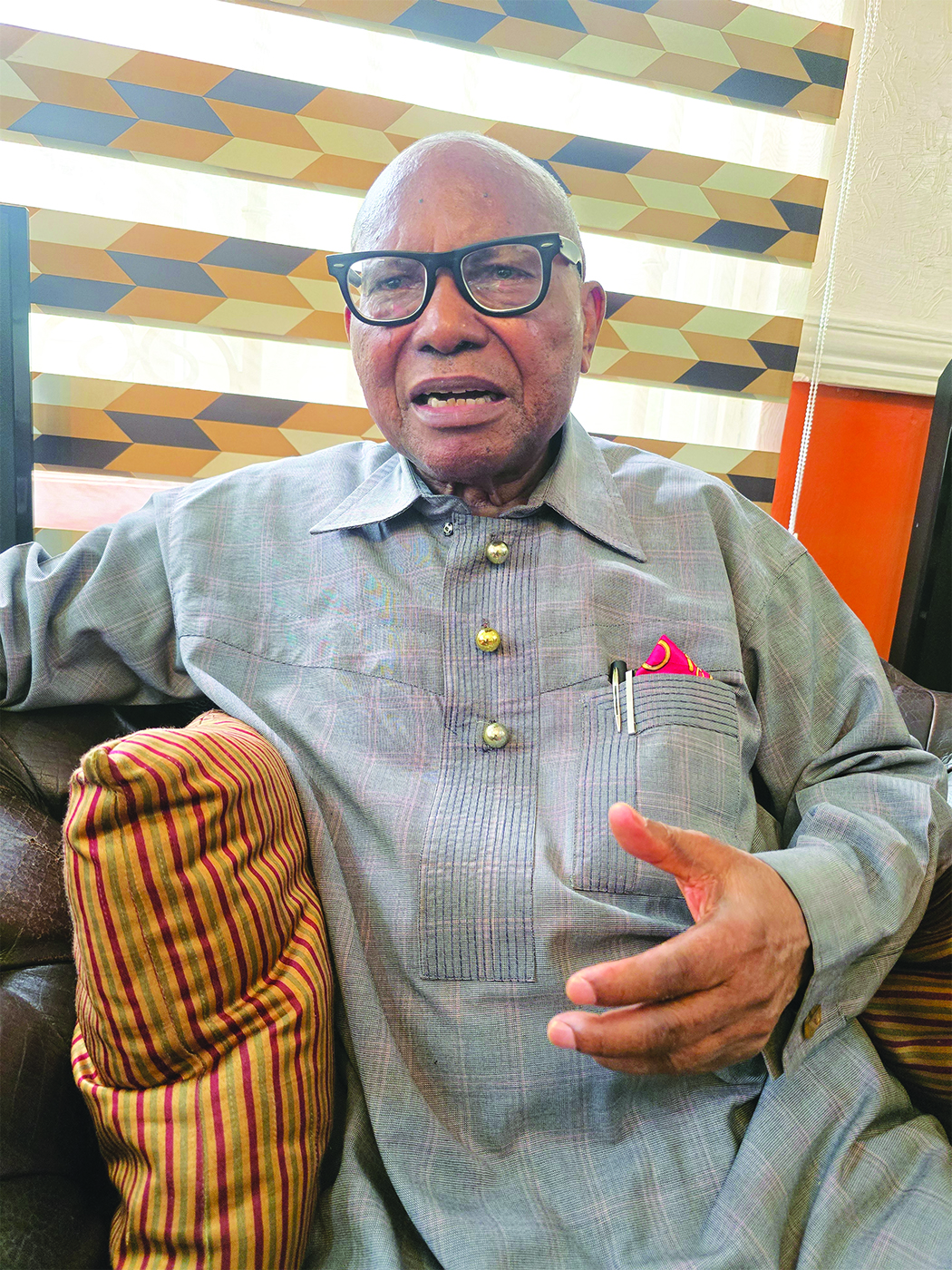
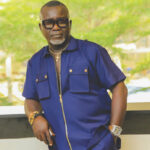
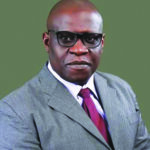
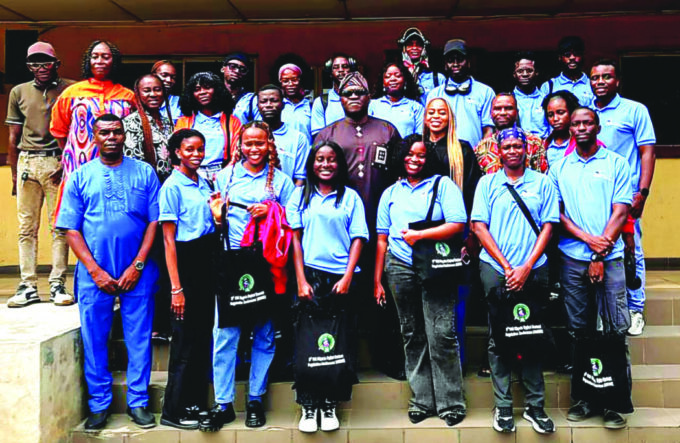
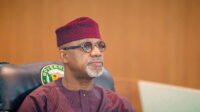
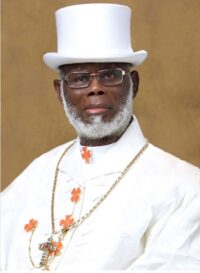
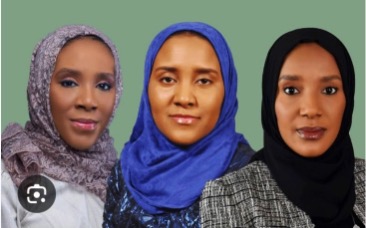
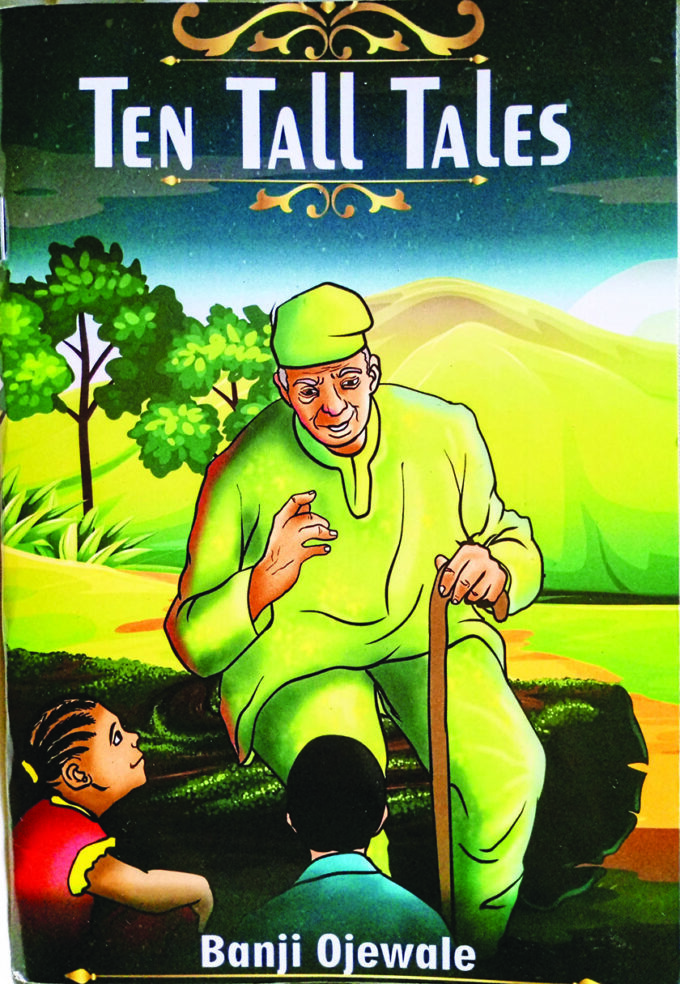

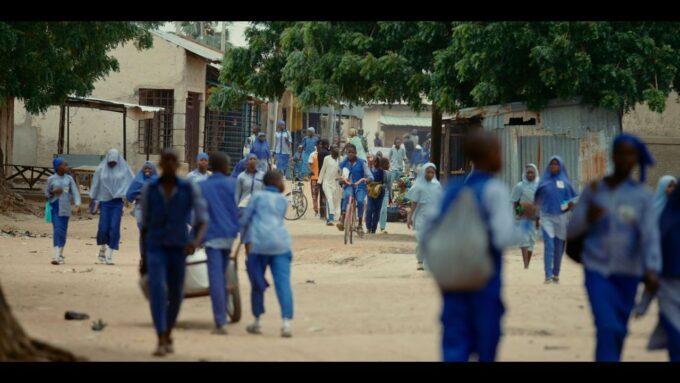



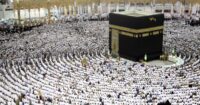
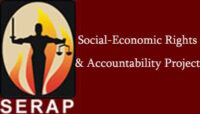
Leave a comment